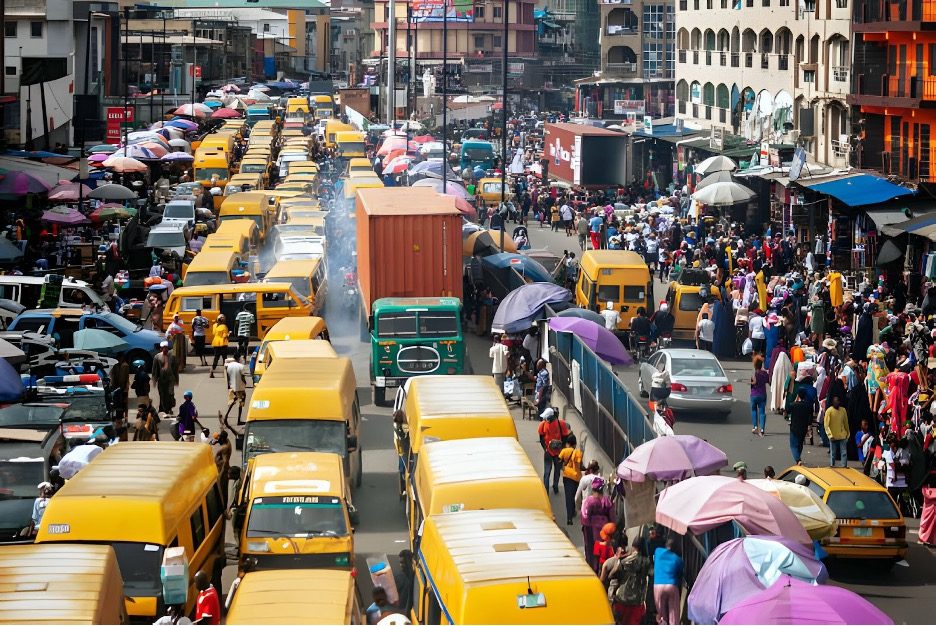Introduction
The year is 2014. There is an air of excitement in seemingly every country worldwide due to the upcoming World Cup. The threat of a never-before-seen epidemic caused by Ebola was on the horizon – one which ultimately served as a precursor for the COVID-19 global pandemic (but let’s not delve into that shall we). By the end of the year, the Naira had also depreciated relative to the dollar and had reached its all-time lowest point at a rate of… N183 to $1. A decade on and the value of that same dollar seems borderline inconceivable as the Naira has become extremely volatile and will likely drop further amidst writing this, currently standing at N1769. This precipitous decline begets the same simple question from economists, politicians, and the general public alike… how?

Political and Economic Landscape
It can be argued that the political landscape has been characterized in the same fashion in which it began; with a large degree of uncertainty, instability, and scepticism. The President has had to contend with several major issues, starting from appeals against the legitimacy of the presidential elections, to dealing with those inherited problems from the previous regime including, but not limited to high unemployment, rapid inflation, etc. Some of these issues, however, have been exacerbated through outright abysmal decision-making and the implementation of ineffective reforms across the board, not least in the case of the revamp of Nigeria’s foreign exchange system.
The aforementioned ‘forex’ reforms, along with scrapping the fuel subsidy, in actuality, have had and continue to have unmitigated adverse effects on the economy. Petrol prices more than tripled, the value of the Naira has sunk into a chasm at a rate never witnessed before compared to the dollar, and inflation has risen to a three-decade high. All of which can be cited as cogent explanations behind the ever-worsening cost of living crisis. Additionally, the most up-to-date figures as of 2022 highlight the GDP per capita at $2,184 which, despite inflation, is below the average figure of $2,645 over the 10 years preceding it. One can therefore surmise that the harrowing economic landscape has created a precarious environment where its inhabitants are less equipped to afford basic needs. Likewise, organizations have reached a point where it almost feels obligatory to divest in assets and this is exemplified by the nation’s most recent foreign direct investment (FDI) value of -$186M, after posting a positive value of $3.3B just a year earlier. This 105% drop-off represents a figure so unfathomable, it seemingly can only be justified by a typographical error. It also marks the first time the FDI plummeted to a negative value since 1980.
Housing Market Dynamics
Despite the bleak state of the political and economic landscape, the real estate market within Nigeria remains somewhat promising as the industry has experienced steady growth year on year. The residential real estate market is estimated to reach a value of $1.93tr by the end of 2024 and further estimates suggest figures rising to $2.56tr by 2028. The robust demand for residential real estate in particular can largely be attributed to the ever-growing population, increasing urbanization, and a growing middle class. There is a notable discrepancy, however, which exists between buyers and sellers, as despite the strides taken to emphasize the development of houses within the luxury and mid-market segments, there remains a greater demand than supply. Additionally, the constant influx of people into urban areas enables further price rises, and in contrast, the alienating of the lower class due to less affordable housing.
Regarding real estate investment, there has been a noticeable trend toward purchasing properties with the primary intent of acquiring rental income and benefitting from capital appreciation. Apartments situated near commercial districts continue to remain increasingly popular with investors due to a myriad of factors, including enhanced security, access to greater amenities, reliable electricity and water supply, and the opportunity for higher rental yields. Foreign investment also plays a critical role in the dynamics of the real estate market as their focus on higher-end residential properties and office spaces offers the potential for higher returns. This ultimately creates a virtuous cycle as those investments enhance the desirability of the area, stimulate demand, and in turn drive up prices in those segments.
Conclusion
A social media user on X (formerly Twitter) described the situation within the country in a unique way only a Nigerian could by stating “At this rate, a dollar will get to 2025 before we do.” It encapsulates how dire the economic situation has become due to what can only be seen as gross mismanagement. Forecasting Nigeria’s political and economic stability could be seen as a mixed bag as on one hand, there remains significant potential for growth which is being driven by a large, youthful population and a diversifying economy. In contrast, the dependence on oil, political instability, and the omnipresent shadow of corruption always looming tends to dampen one’s sense of optimism. Similarly, within the realm of real estate, it continues to prove difficult to predict the future of the markets, however, it is advised to closely monitor areas such as housing finance reforms, land use regulations, and infrastructure investments. The advent of platforms such as real estate investment trusts (REITs) demonstrates a willingness to capitalize on the great potential within the housing market and offers a slight glimpse into the incalculable progress that could be achieved if the nation could indeed achieve political and economic stability.

